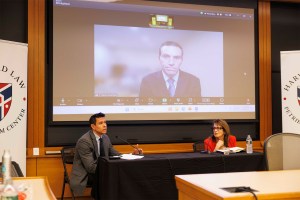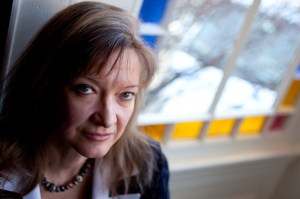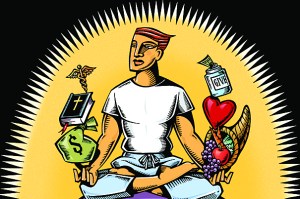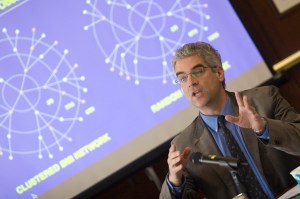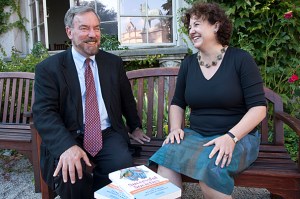Tag: Health
-
Health
When cost-cutting backfires
Chronically ill elderly patients, when asked to bear a higher share of health care costs, cut prescription drug use and office visits. Consequently, they were hospitalized more often, according to a Harvard Kennedy School study.
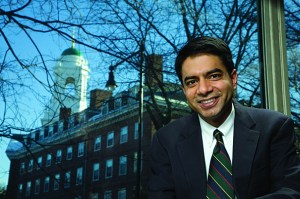
-
Science & Tech
Battling climate change on all fronts
Harvard’s research spans the gamut from the sciences to the humanities, examining key questions about this critical challenge facing humanity.
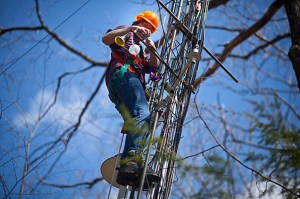
-
Nation & World
Understanding health care reform
With the debate on health care reform slowing after its passage, media outlets now turn to explaining how the massive legislation will be implemented.
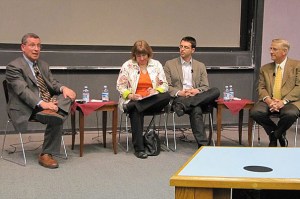
-
Nation & World
Beyond boundaries
As a global university, Harvard not only attracts students and faculty from around the world, it sends them out, to teach and work, extending Harvard’s influence far beyond its local boundaries.
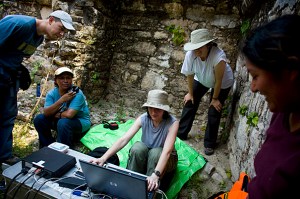
-
Arts & Culture
Buddhism on the dinner plate
New book by a Harvard nutritionist and renowned monk encourages the Buddhist sense of mindfulness in how people eat.
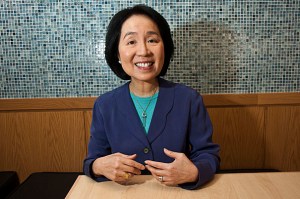
-
Nation & World
Days to find a doctor
Patients at the Harvard Humanitarian Initiative field hospital at Fond Parisien, Haiti, share their stories of the deadly Jan. 12 earthquake and its aftermath.
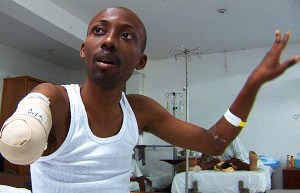
-
Nation & World
‘Building back, better’
Haitians face a long road for post-earthquake recovery. Some Harvard faculty members will walk it with them.
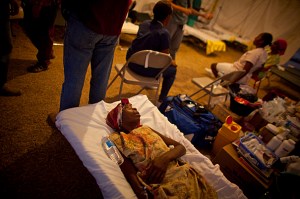
-
Campus & Community
Second opinions, anywhere
Rwanda has 10 million people, but no cancer specialists. A recent collaboration between a Waltham medical information company and a Harvard University research institute aims to reduce such professional isolation – and to learn from the medical knowledge and resourcefulness of doctors in the developing world.
-
Campus & Community
Giving back
Marie Trottier handles accessibility issues at Harvard for the disabled, but she’s also involved in establishing a hospice, and acts on the side.
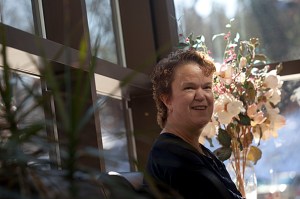
-
Campus & Community
Inaugural Burke Global Health Fellows named
The Provost and Deans Committee of the Harvard Initiative for Global Health (HIGH) announced the selection of the 2009 Burke Global Health Fellows.
-
Campus & Community
Julius Benjamin Richmond
Julius Benjamin Richmond, M.D., Professor of Health Policy, Emeritus in the Faculty of Medicine was born in Chicago, the son of Russian Jewish immigrants, on 26 September, 1916. He died at his home in Brookline, MA on 27 July, 2008. Few individuals have had as great an impact on health, health care, and the well-being…
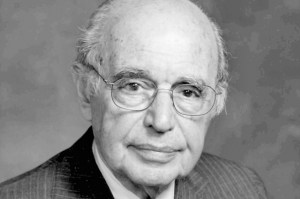
-
Campus & Community
Food for thought, and testing
Health and safety ninja Valerie Nelson makes sure campus meals are safe.

-
Campus & Community
How-to guide for flu coverage
The Nieman Foundation for Journalism at Harvard launched a comprehensive online guide to covering pandemic flu.
-
Nation & World
Wanted: Doctors for Africa
Esther Mwaikambo is used to starting small. Until her teaching hospital was started in 1997, there was only one medical school in Tanzania, graduating 25 to 40 doctors annually.
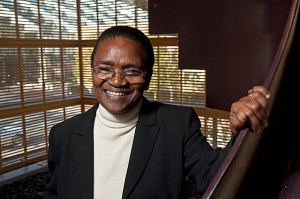
-
Campus & Community
‘Aura’ migraines a stroke risk
Young women who have migraines with auras are twice as likely to have a stroke, researchers have confirmed. The investigators from the US, France and Germany did not find any link between migraines and heart attacks or death due to cardiovascular disease but there was a 30% increase in the risk of angina (heart pain).
-
Campus & Community
Harvard Medical School releases iPhone app to protect against swine flu
As the threat of the swine flu (otherwise known as H1N1) pandemic become more serious and President Obama declares a national emergency over the rapidly spreading virus, Harvard Medical School is hoping to help educate people with its new iPhone app. The Swine Flu app, which is currently available on the app store, costs $1.99.
-
Campus & Community
UHS to open final seasonal flu clinics
After a dwindling supply of vaccines forced the suspension of seasonal flu clinics, University Health Services (UHS) officials said today (Oct. 26) that it had acquired additional doses and would be able to reschedule several clinics.

-
Campus & Community
Study says 1 in 5 children lack vitamin D
At least 1 in 5 US children ages 1 to 11 don’t get enough vitamin D and could be at risk for a variety of health problems including weak bones, the most recent national analysis suggests. By a looser measure, almost 90 percent of black children that age and 80 percent of Hispanic children could…
-
Campus & Community
A Cancer Visible To The Naked Eye, But Doctors Aren’t Looking
“We were very, very surprised,” Geller recalls. “About three-quarters of them were never trained in the skin cancer exam, and more than half never once practiced the examination during their primary care residency.” Geller, who’s a senior research scientist at the Harvard School of Public Health, says those high levels of inexperience are really worrisome.…
-
Campus & Community
Flu, Me? Public Remains Wary Of H1N1 Vaccine
Fewer than half of Americans say that they are planning to receive the new H1N1 swine flu vaccine, according to recent polls — a trend that is leaving many health professionals at a loss. For one thing, there are many different reasons why people say they are unlikely to get vaccinated. Nearly a third are…
-
Campus & Community
Dementia is a terminal illness, Boston study says
Dr. Susan Mitchell of Hebrew SeniorLife Institute for Aging Research and Harvard Medical School led a study of 323 patients with end-stage dementia at 22 nursing homes near Boston.
-
Campus & Community
Seasonal flu vaccine update
University Health Services (UHS) will conclude offering seasonal flu vaccinations in about two weeks as the University’s health care workers prepare for the arrival of the first doses of H1N1 influenza vaccine.

-
Campus & Community
Study Finds Pro and Cons to Prostate Surgeries
People intuitively think that a minimally invasive approach has fewer complications, even in the absence of data,” said Dr. Jim C. Hu, the study’s lead author, who is director of urologic robotic and minimally invasive surgery at Brigham and Women’s Hospital in Boston.
-
Campus & Community
Body’s Own Antioxidant May Slow Parkinson’s Decline, Study Says
Today’s study “suggests a new approach in slowing down the rate of the disease,” said Schwarzschild, an associate professor of neurology at Harvard Medical School, in an Oct. 9 telephone interview. “People live with Parkinson’s disease for decades. We want to make those decades much more manageable and keep people much more mobile….”
-
Campus & Community
U.S. study shows mammograms save lives
“The most effective method for women to avoid death from breast cancer is to have regular mammographic screening,” Dr. Blake Cady of Cambridge Hospital Breast Center and Harvard Medical School in Massachusetts told reporters in a telephone briefing…
-
Campus & Community
‘Immortality Enzyme’ Wins Three Americans Nobel Prize
Three American scientists, including Jack W. Szostak, genetics professor at Harvard Medical School and Massachusetts General Hospital, shared the Nobel Prize in medicine for research linked to telomerase, an “immortality enzyme” that allows cells to divide continuously without dying and could play a role in the uncontrolled spread of cancer cells.


